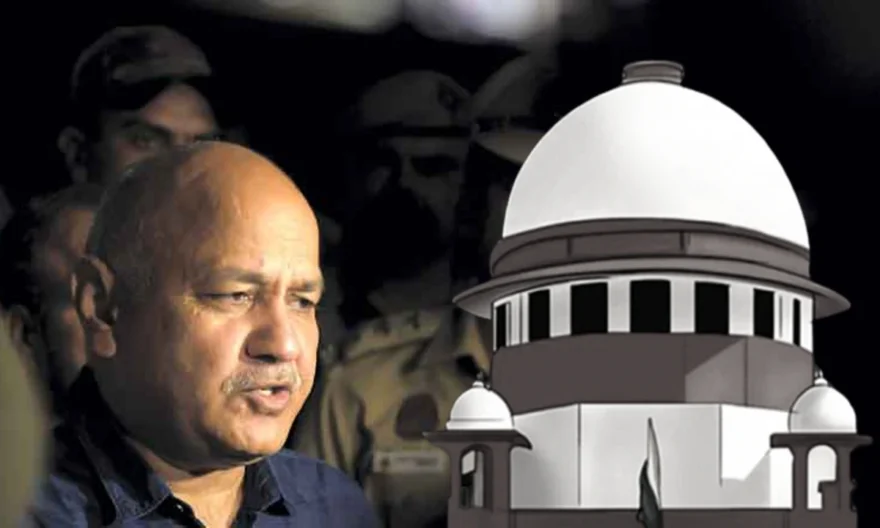
The Supreme Court on Monday rejected the regular bail pleas of former deputy chief minister Manish Sisodia in connection with corruption and money-laundering cases linked to the alleged Delhi excise policy scam.
A bench of Justice Sanjiv Khanna and Justice SVN Bhatti stated that it has duly acknowledged the statements provided by the investigative agencies, indicating that the trials for these cases are expected to conclude within the span of six to eight months. However, the bench also emphasized that if the trial proceeds in a “sloppy manner,” Sisodia would be free to apply for bail in these cases in three months.
The Apex Court rendered its verdict on Sisodia’s two distinct regular bail petitions, which were filed in relation to corruption and money-laundering cases tied to the now-defunct Delhi excise policy. The court had reserved its verdict on both pleas on October 17, 2023.
Sisodia was apprehended by the Central Bureau of Investigation (CBI) on February 26, allegedly due to his involvement in the “scam.” The Aam Aadmi Party (AAP) leader has remained in custody since his arrest.
The Enforcement Directorate (ED) apprehended Sisodia in a money-laundering case that emanated from the CBI FIR on March 9, after interrogating him in Tihar jail. On February 28, Sisodia resigned from the Delhi cabinet.
The high court had previously rejected his bail application in the CBI case on May 30, contending that, as a former deputy chief minister and excise minister, he held a “high-profile” status and had the potential to influence witnesses.
On July 3, the high court also denied him bail in the money-laundering case linked to alleged irregularities in the city government’s excise policy, asserting that the charges against him were “very serious in nature.”
The Delhi government had implemented the policy on November 17, 2021, but terminated it by the end of September 2022 amid allegations of corruption. Investigative agencies have contended that the new policy led to cartelization and favored individuals ineligible for liquor licenses in exchange for financial gains. However, both the Delhi government and Sisodia have consistently denied any wrongdoing, maintaining that the new policy was designed to increase Delhi’s revenue share.




